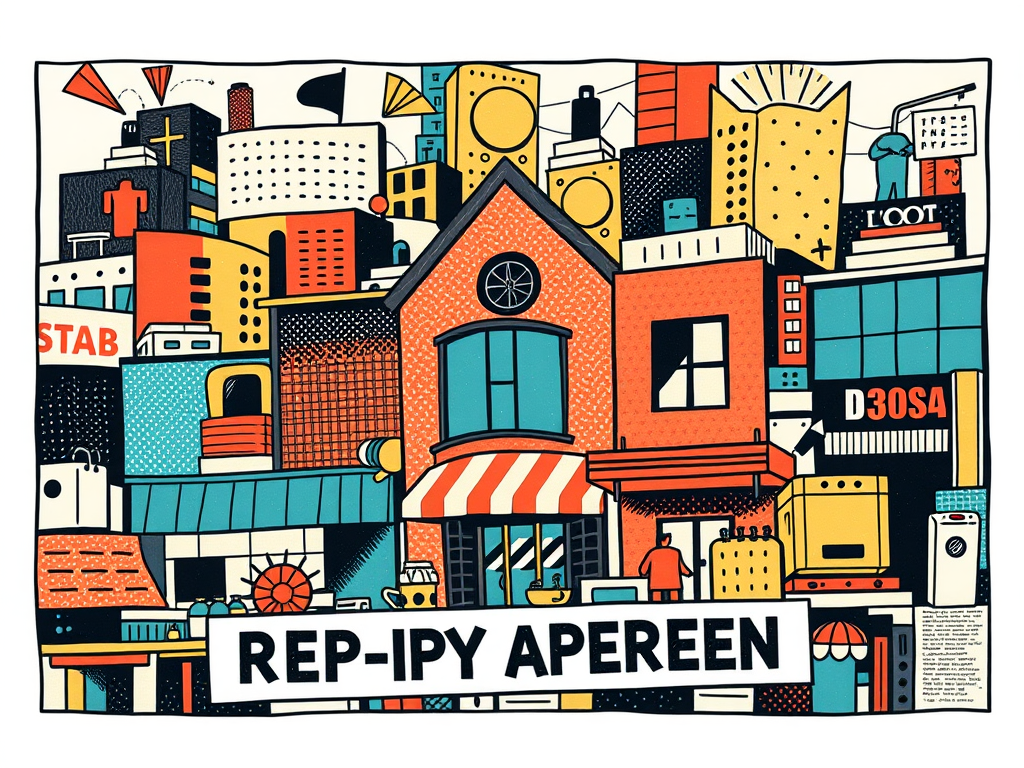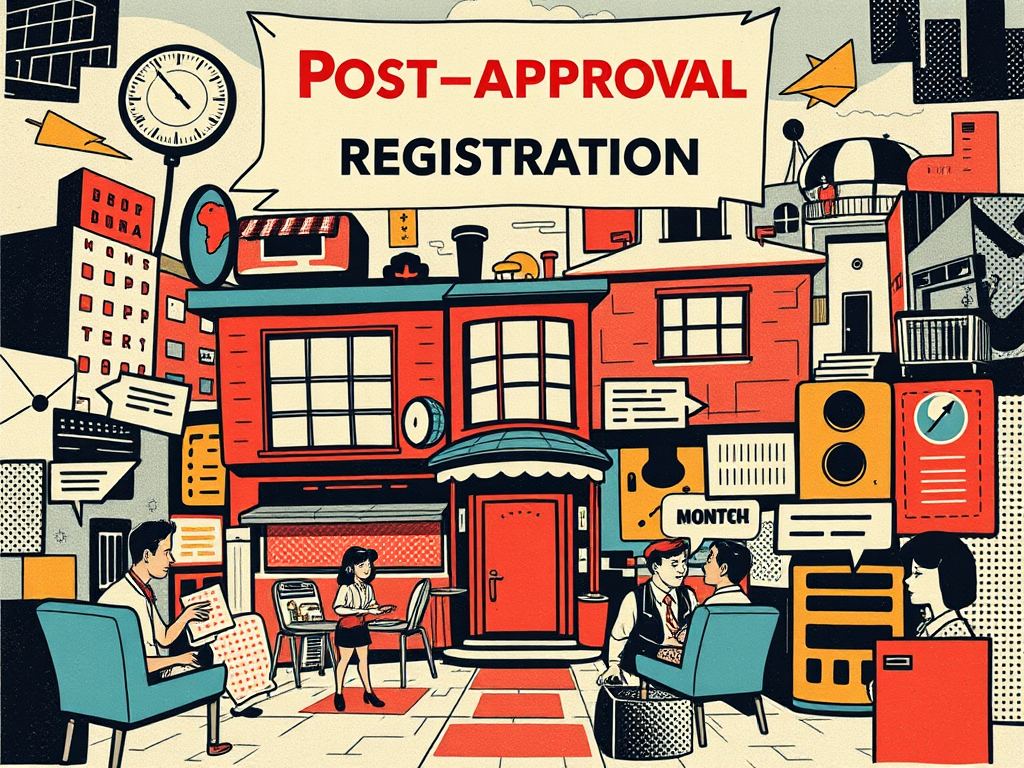
After Approval: Registering Your Residence and Other Next Steps
Reading time: 12 minutes
Table of Contents
- Introduction
- Understanding the Approval Process
- Registering Your Residence
- Financial Considerations
- Legal Requirements and Documentation
- Settling In: Practical Steps
- Long-term Planning
- Conclusion
- FAQs
1. Introduction
Congratulations on receiving approval for your residency application! This milestone marks the beginning of an exciting new chapter in your life. However, the journey doesn’t end here. There are several crucial steps you need to take to ensure a smooth transition and comply with local regulations. This comprehensive guide will walk you through the process of registering your residence and other essential next steps, providing you with the knowledge and confidence to navigate this new phase successfully.
2. Understanding the Approval Process
Before diving into the specifics of residence registration, it’s important to have a clear understanding of the approval process you’ve just completed. This context will help you appreciate the significance of the steps that lie ahead and how they fit into the broader picture of your relocation journey.
2.1 Types of Approvals
Depending on your situation, you may have received different types of approvals. These could include:
- Work permit approval
- Student visa approval
- Family reunification approval
- Investment-based residency approval
Each type of approval comes with its own set of requirements and next steps, so it’s crucial to understand the specific nature of your approval.
2.2 Validity Period
Your approval will typically come with a validity period. This could range from a few months to several years, depending on the type of residency you’ve been granted. Make note of this period, as it will influence many of the steps you’ll need to take, including when you’ll need to renew your residency status.
3. Registering Your Residence
One of the most critical steps after receiving approval is registering your residence. This process is essential for establishing your legal presence in the country and accessing various services and benefits.
3.1 Timeframe for Registration
In most cases, you’ll need to register your residence within a specific timeframe after arrival or approval. This period can vary depending on the country and type of residency, but it’s typically within 30 to 90 days. Failing to register within the required timeframe can result in fines or even jeopardize your residency status, so it’s crucial to prioritize this step.
3.2 Required Documents
To register your residence, you’ll typically need to provide the following documents:
- Valid passport
- Residency approval document
- Proof of address (rental agreement or property deed)
- Recent passport-sized photographs
- Completed registration form (usually available at the local registration office or online)
Depending on your specific situation, additional documents may be required. It’s always best to check with the local authorities or consult with a legal expert to ensure you have all the necessary paperwork.
3.3 Registration Process
The registration process typically involves the following steps:
- Locate your local registration office (often called a town hall, city hall, or municipal office)
- Schedule an appointment if required
- Gather all necessary documents
- Attend the appointment and submit your documents
- Pay any applicable fees
- Receive your registration certificate or residency card
In some countries, you may be able to complete part or all of this process online. However, many jurisdictions still require in-person visits for identity verification and document submission.
4. Financial Considerations
As you settle into your new residence, there are several financial aspects you’ll need to address to ensure a smooth transition and compliance with local regulations.
4.1 Opening a Bank Account
Opening a local bank account is often one of the first financial steps you’ll need to take. This will facilitate easier transactions, bill payments, and salary deposits if you’re working. Requirements for opening an account can vary, but typically include:
- Valid passport
- Proof of address
- Residency permit or registration certificate
- Initial deposit (amount varies by bank)
Some banks may have additional requirements, such as proof of income or a local tax identification number.
4.2 Tax Obligations
Understanding and fulfilling your tax obligations is crucial. Depending on your residency status and the country’s tax laws, you may need to:
- Register with the local tax authority
- Obtain a tax identification number
- File annual tax returns
- Pay income tax, property tax, or other applicable taxes
It’s highly recommended to consult with a local tax expert or accountant to ensure you’re meeting all your tax obligations and taking advantage of any available deductions or credits.
4.3 Insurance Requirements
Many countries require residents to have certain types of insurance. These often include:
- Health insurance
- Liability insurance
- Property insurance (if you own real estate)
Research the specific insurance requirements in your new country of residence and ensure you’re adequately covered.
5. Legal Requirements and Documentation
Beyond residence registration, there are several other legal requirements and documents you’ll need to address.
5.1 Driving License
If you plan to drive in your new country of residence, you’ll need to determine whether your current driver’s license is valid or if you need to obtain a local license. This often depends on your country of origin and the duration of your stay. Some countries allow you to drive on a foreign license for a certain period, while others require you to obtain a local license immediately.
5.2 Social Security Registration
Many countries require residents to register for social security or a similar system. This is particularly important if you’re working, as it often relates to pension contributions, unemployment benefits, and healthcare access.
5.3 Healthcare Registration
Depending on the country’s healthcare system, you may need to register with a local doctor or healthcare provider. This process often involves:
- Choosing a primary care physician
- Registering with a local health center
- Obtaining a health insurance card or number
6. Settling In: Practical Steps
As you navigate the legal and administrative aspects of your move, don’t forget about the practical steps that will help you settle into your new home and community.
6.1 Housing
If you haven’t already secured permanent housing, this should be a priority. Whether you’re renting or buying real estate in greece or another country, familiarize yourself with local housing laws and regulations. For renters, this includes understanding your rights and responsibilities as a tenant. For buyers, it’s crucial to navigate the local property market carefully, possibly with the help of a real estate agent familiar with expatriate purchases.
6.2 Utilities and Services
Setting up essential utilities and services is a key part of settling in. This typically includes:
- Electricity
- Water
- Gas (if applicable)
- Internet and phone services
- Waste management services
Research local providers and compare options to find the best services for your needs and budget.
6.3 Language and Cultural Integration
If you’re moving to a country where you’re not fluent in the local language, consider enrolling in language classes. This will not only help with day-to-day interactions but also aid in your cultural integration. Additionally, look for local expatriate groups or community organizations that can provide support and social connections as you adjust to your new environment.
7. Long-term Planning
While immediate steps are crucial, it’s also important to think about your long-term plans and how they align with your residency status.
7.1 Residency Renewal
Be aware of when your current residency permit expires and what the renewal process entails. Start preparing for renewal well in advance, as the process can sometimes be lengthy and may require updated documentation.
7.2 Path to Permanent Residency or Citizenship
If you’re considering long-term or permanent settlement, research the requirements for permanent residency or citizenship. These often include:
- Minimum residency periods
- Language proficiency requirements
- Integration tests
- Financial stability criteria
Understanding these requirements early can help you plan and work towards your long-term goals.
7.3 Career and Education Planning
Consider how your move affects your career trajectory or educational opportunities. This might involve:
- Getting qualifications recognized in your new country
- Exploring further education or professional development opportunities
- Networking within your industry or field
8. Conclusion
Navigating the post-approval landscape involves a complex web of administrative, financial, and practical considerations. By methodically addressing each aspect – from residence registration to long-term planning – you set yourself up for a successful transition and integration into your new home. Remember, this process is not just about ticking boxes and filling out forms; it’s about laying the foundation for your new life and future opportunities.
While the journey may seem daunting at times, approach each step with patience and diligence. Don’t hesitate to seek professional advice when needed, whether from legal experts, financial advisors, or experienced expatriates. With careful planning and a proactive approach, you’ll soon find yourself not just residing, but truly thriving in your new environment.
9. FAQs
Q1: What happens if I don’t register my residence within the required timeframe?
A1: Failing to register your residence within the stipulated timeframe can result in fines, difficulties accessing public services, and potentially jeopardize your residency status. In severe cases, it could lead to deportation. It’s crucial to prioritize this step and complete it as soon as possible after arrival.
Q2: Can I use my foreign driver’s license indefinitely in my new country of residence?
A2: The validity of foreign driver’s licenses varies by country. Some nations allow you to use a foreign license for a limited period (often 3-12 months), while others require immediate conversion to a local license. Check with the local transport authority to understand the specific requirements and timelines applicable to your situation.
Q3: How do I prove my address for residence registration if I’m staying with friends or family?
A3: If you’re not renting or owning property, you may need to provide alternative proof of address. This could include a written declaration from your host, along with their proof of residence and identification. Some countries may also require additional documentation or a visit from local authorities to verify your living situation.
Q4: What should I do if I change my address after registering my residence?
A4: Most countries require you to update your registered address when you move. This typically involves notifying the local registration office within a specific timeframe (often 1-2 weeks) of your move. You’ll likely need to provide proof of your new address and may need to update other documents, such as your residency permit or driver’s license.
Q5: Are there any restrictions on opening a bank account as a new resident?
A5: While most countries allow new residents to open bank accounts, there may be some restrictions or additional requirements. These could include higher initial deposits, limited account types, or the need for a local guarantor. Some banks may also have ‘new resident’ or ‘expatriate’ account options specifically designed for your situation. Research different banks and their offerings to find the best fit for your needs.

Article reviewed by Sophia Georgiadou, Global Expansion Consultant | Market Entry Strategist | Breaking Into Emerging Markets with Tailored Localization Plans, on May 15, 2025




